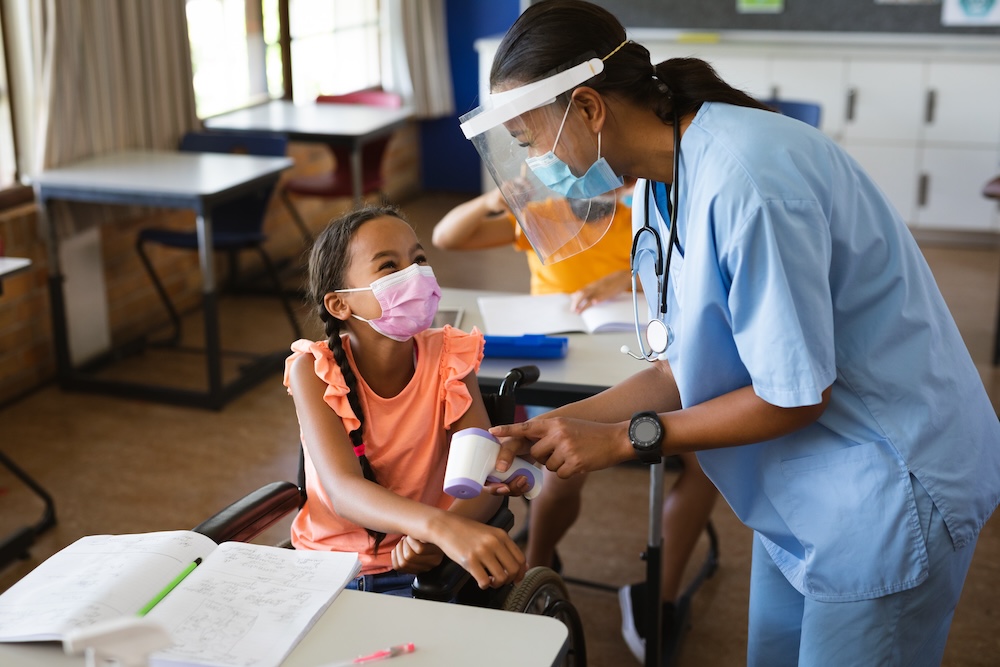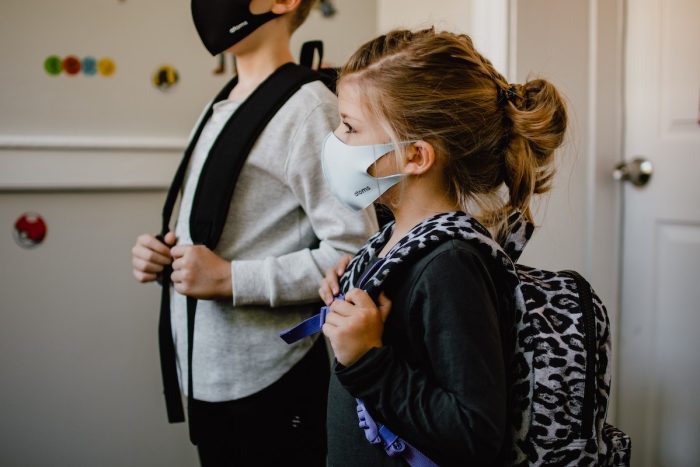
Primary care physicians have always been on the front line of managing trauma and trauma-related disorders in youth, although they often may feel ill equipped to do so. Children vulnerable to multiple ongoing traumas in the context of their communities and families present to primary care physicians for a variety of medical and behavioral health sequelae, and often face difficulty in accessing and engaging with specialty psychiatric care. These cumulative traumatic events often make engagement, follow-through and treatment challenging. The pandemic has further intensified these dynamics, and made access to specialty resources and assessments yet more challenging. Additionally, the effects of pandemic-related trauma and stress on families has had unequal impacts for communities at higher risk as well as youth and families of color.
The challenges often presented in working with vulnerable communities, particularly ones with high rates of intergenerational trauma, racial discrimination and lower incomes, can feel overwhelming to an individual clinician. In the face of these circumstances, it is easy to see how physicians may feel the effects of burn-out and despair. Yet primary care has a unique role in building supportive relationships over time and helping to support resilient families. For many families, the primary care office is a safe and consistent home in an otherwise unpredictable world. Building a relationship with a family at risk can provide scaffolding for ongoing healthy relationships. Identifying and amplifying a patient’s and family’s strengths can help maintain resiliency in the face of stress and trauma. One antidote to holding such challenges is finding ways to manage these patients as a team and with the supports of services such as Project TEACH– https://
Hilary is one such 14-year old teenaged girl impacted by the pandemic. A teenager with a history of autism spectrum disorder, attention deficit and hyperactivity disorder, and anxiety, Hilary has always needed more specialized supports from school and the community. In addition, she is a young woman with multiple adverse childhood experiences (ACEs), including a history of witnessed domestic violence, divorced parents, and household mental health and substance use disorder. Screening tools to measure ACEs are freely available here: https://www.aap.org/en-
Hilary’s pediatrician reached out to Project TEACH for a phone consultation in the context of acute crisis: Hilary had disclosed an experience of possible sexual abuse to a teacher at school. The adult Hilary identified as possibly having committed the alleged experience of abuse was no longer living in the home. A virtual face-to-face consultation was set up with a Project TEACH child and adolescent psychiatrist (Project TEACH CAP) following the initial phone consultation to assess and make recommendations with a trauma-informed lens. Specifically, efforts were taken to resist re-traumatization by offering choices to Hilary and her mother and by taking a non-judgmental stance. In this one-time evaluation, assessment of Hilary’s report of possible abuse was limited by the virtual meeting in the context of Hilary’s home, significant social anxiety, and concerns for parental censoring. Choices were offered in terms of how the Project TEACH CAP could meet separately with each of Hilary and her mother and for how long. The Project TEACH CAP took a strength-based approach in terms of learning more about how Hilary has been coping with stress generally, and more specifically pulling for family resiliency factors, inquiring about family values, rituals and supports that have helped the family cope with current pandemic stress. The Project TEACH CAP also inquired about benevolent childhood experiences, including having a caregiver with whom Hilary felt safe, a good friend, a teacher who cared for her, and opportunities to have a good time. With both Hilary and her mother together, her mom was asked what she was most proud of about Hilary and Hilary’s strengths. Hilary’s mom reported Hilary’s love of music, comfort in her pet animals, a close relationship with her mom and her music teacher. The Project TEACH CAP also asked about what supports Hilary’s mom has had given the socioeconomic determinates and other social determinants of health she may be experiencing during the pandemic and otherwise.
In the face-to-face evaluation, Hilary showed no signs or symptoms of psychotic disorder or other more severe behavioral health disorders, and her statements about alleged sexual abuse were understood in the context of anxiety due to multiple difficult transitions and a history of experiencing childhood traumatic events. Her ACES score on the de-identified PEARLS screening tool was elevated, as were her symptoms of post-traumatic stress disorder (PTSD). PEARLS is a freely availably ACES screening tool that provides opportunity to identify an ACES score without identifying specific ACES —https://www.acesaware.org/
The Project TEACH CAP recommended that Hilary re-engage in individual therapy and slowly increase Sertraline, previously prescribed for Hilary’s anxiety and other mental health concerns, as tolerated. It was also recommended to Hilary and her mon that it could be helpful to obtain a forensic report from the local child advocacy center regarding the concerns for sexual abuse, and if the forensic report indicated any signs of abuse to connect with community-based domestic violence advocacy organizations for other referrals/resources for both Hilary and her mother. Project TEACH took a trauma-based approach to explain Hilary’s symptoms to her mother, and made strong recommendations for more specialized evaluation and treatment. Importantly, support was given to the pediatrician in knowing she was not alone in holding the uncertainty and stress of this family situation.
While Hilary’s situation is unique, many youth and their families are showing signs of stress in response to the ongoing pandemic and school/support challenges. With increased stress on families during the pandemic, concern for childhood wellbeing has been heightened by increased time at home in sometimes overcrowded conditions and the lack of family and peer support from outside the home. A challenging role of primary care during pandemic times and beyond is to assess safety, hold uncertainty, and strengthen family resilience and hope. This work can only be done in the context of compassionate healthcare communities. Project TEACH is one resource to help primary care physicians grapple with difficult questions and manage their own stress in this context. From telephone consultations, face-to-face evaluations, linkages and referrals to community resources, and PCP support groups launched during the pandemic, Project TEACH offers ongoing support for providers to take care of themselves, as well as the children and families in their practices.
Child

Child
